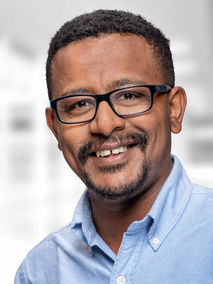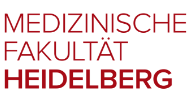
Dr. rer. nat. Dr. med. vet. Zegeye Hailu Jebessa
Zegeye Hailu Jebessa was born in Ambo, Ethiopia. He graduated from Addis Ababa University with a distinction and he lectured at Mekele Univerisity, Ethiopia. He successfully completed an MSc study in Molecular Biology/Medicine at K.U.Leuven, Belgium, where he worked on Bacterial type II Toxin- Antitoxin system, specifically Phd-Doc and uncovered the molecular mechanism of action of bacterial toxin-Doc to kill bacteria. From 2009-2015, under supervision of Prof. Johannes Backs, he did his PhD and Postdoc training at Department Molecular Cardiology and Epigenetics, University Hospital Heidelberg, Germany. During his PhD as well as Postdoc time he worked on the role of epigenetic modifier-HDAC4 and its post-translational modification in adaptive and maladaptive cardiac remodeling.
Since January-2016 he joined the Lab. of Prof. Dr. med. Patrick Most at Section Molecular and Translational Cardiology, Department of Internal medicine III, University Hospital Heidelberg, Germany.
Zegeye Hailu Jebessa was born in Ambo, Ethiopia. He graduated from Addis Ababa University with a distinction and he lectured at Mekele Univerisity, Ethiopia. He successfully completed an MSc study in Molecular Biology/Medicine at K.U.Leuven, Belgium, where he worked on Bacterial type II Toxin- Antitoxin system, specifically Phd-Doc and uncovered the molecular mechanism of action of bacterial toxin-Doc to kill bacteria. From 2009-2015, under supervision of Prof. Johannes Backs, he did his PhD and Postdoc training at Department Molecular Cardiology and Epigenetics, University Hospital Heidelberg, Germany. During his PhD as well as Postdoc time he worked on the role of epigenetic modifier-HDAC4 and its post-translational modification in adaptive and maladaptive cardiac remodeling.
Since January-2016 he joined the Lab. of Prof. Dr. med. Patrick Most at Section Molecular and Translational Cardiology, Department of Internal medicine III, University Hospital Heidelberg, Germany



